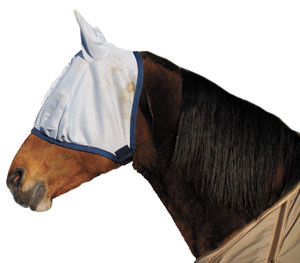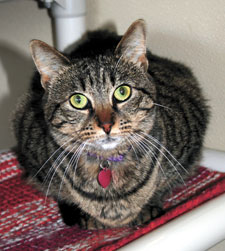
JULY 4, 2012
Happy One Year Anniversary,

Roxie's Charity Boutique & Gallery opened up in their Cave Creek location just one year ago. Since that time they have made a lot of new friends and met some wonderful animal lovers.

If you haven't been by yet, or lately, please plan a trip to Roxie's. They are tucked away in a artsy little red house filled with jewelry, handbags, pottery, metal art and tons of fun finds right behind Las Tiendas in the heart of Cave Creek (6130 E. Cave Creek Rd.) They are open Thursday – Saturday 10 a.m. – 5 p.m. All proceeds from sales go to benefit Animal Guardian Network.
JULY 4, 2012
Important to protect horses from increasing fly problem
If you are around horses or a stable lately, you may notice an increase in flies such as stable flies, house flies, horn flies, and horse flies.
 Dr. Leslie Easterwood, clinical assistant professor for the large animal clinical sciences department at Texas A&M University College of Veterinary Medicine & Biomedical Sciences, said flies are worse in the summertime and this year they are particularly bad.
Dr. Leslie Easterwood, clinical assistant professor for the large animal clinical sciences department at Texas A&M University College of Veterinary Medicine & Biomedical Sciences, said flies are worse in the summertime and this year they are particularly bad.
Last year it was dry and hot so it didn’t seem quite as bad, but this year there seems to be an increase,” Easterwood said.
Flies can be a nuisance to a horse because the horse tries to swat and get away from them. Other than annoying the horse, the biting flies can cause physical irritations. Often, the flies congregate around the horse’s face trying to drink the fluid at the corner of the horse’s eyes. Since flies carry bacteria on their feet, when they are looking for moisture they deposit bacteria, larvae, and parasites on the horse’s face and around the eyes.
“The biggest thing is the transfer [of bacteria] and all flies can be bothersome,” Easterwood said.
Flies often deposit Habronema larvae on open wounds and the horse’s eyes.
“As the larvae migrate through the tissue, they cause open sores and that is very common in horses this time of year,” Easterwood said.
Horse flies are even worse than normal house and stable flies. Easterwood said these flies are at least 10 times the size of a house fly, have big mouths, and transfer more diseases than a house or stable fly.
“They can transfer diseases such Equine Infectious Anemia, a very fatal disease that we don’t have a cure for,” she said.
Easterwood said these irritations, sores, diseases, and transfer of bacteria are the main reason it is important to have proper fly control.
“Good fly control extends to the face, not just spraying the body, but using stuff safe to use by their eyes,” she said.
Easterwood recommended using sprays and ointments to repel flies. Ointment can be applied to a cloth and used to wipe the horse’s eyes. The repellent can be bought over the counter or through a veterinarian. Different environmental factors determine which product should be used for individual needs.
“If there is a bad fly problem, you would be better off to use a product every day that you can reapply frequently to keep the population down. As opposed to if you have a very good environmental program, you can apply the
longer lasting product,” Easterwood said. She added that most people reapply fly products daily.
She warned, however, that many products claim the repellent lasts longer than others.
“We have found that very few [products] last as long as they say they will,” Easterwood said.
She explained that all fly repellent works on the various types of flies.
“
It repels all of [the
flies] and mosquitoes,” Easterwood said.
She also suggested covering the horse with fly sheets for their bodies and fly masks for their faces.
Other options include an automatic fly spray system in barns, moving manure and trash piles away from the horses, drying out the manure pile, or the use of fly predators.
Pet Talk is a service of the College of Veterinary Medicine & Biomedical Sciences, Texas A&M University. Stories can be viewed on the Web at www.vetmed.tamu.edu/pet-talk.



